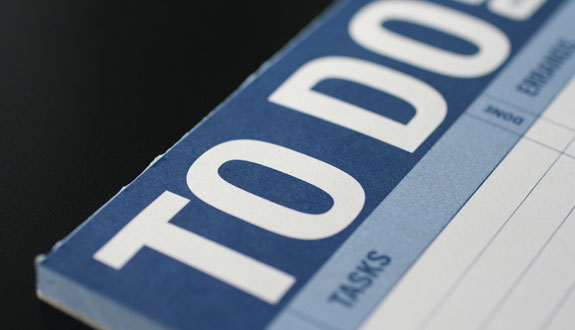
As many of you know, Blueprint LSAT Prep recently surveyed a large number of potential law students about their views on legal education and expectations of their futures. We first wrote on the application process and how recent trends match up with student’s views.
This week, we’re going to look at how much it actually costs to go to law school, and what that means long-term during a legal career/life of a student loan.
Law school tuition has, on average, increased tremendously over the past two decades (an overall trend in higher education). Since the beginning of the recession in 2008, there’s been an increase of over $4,000/year total in the average law school tuition price. Couple that with increased cost of living, and you begin to wonder how anyone can afford to go to law school.
The almost 600 students we surveyed (in conjunction with Breaking Media) overwhelmingly felt they would be paying $40-$50K, plus the cost of living. Looking at the actual numbers, ABA lists the average tuition at a public school as $22,116 for 2011 ($23,590 for 2012). For a private school, that skyrockets to $40,585. With an average living expense of $14,445 (which includes books and other materials), we come in at an average of $36,561 public, $55,030 private. So our students were pretty close with their estimates, suggesting they’re aware of the dollar tag of the investment, even if they’re not aware of exactly how much money that is.
How are they planning to pay for this?
Outside of the lucky 16% who expect family to foot the bill, 60% are looking at student loans (20% are hoping for scholarships, though that usually results in looking at a lower-ranked school than they could otherwise attend). Those 60% for the most part (89%) expect to take out at least $120K (with a block of 20% going up to $200K – ouch).
The ABA reports that the 69% were pretty spot-on with $120K ($124,950 was the average debt load in 2010-2011) for private schools. Going to a public school will prevent you from taking on about $50K of that amount ($75,728 average student loan debt load for 2010-2011). Either way, it’s a big chunk of change.
So how are prospective law students planning to pay the loans off?
Most expect to do so on a salary of between $50-100K (39% expect to earn $50-75K; 28% expect to earn between $75 and $100K). And while 25% expect it to take them 6-9 years to pay it off, 68% are looking at carrying that debt around for over a decade (which is more realistic – see below).
Student salary expectations were much more accurate than expected, though still inflated. According to NALP, the majority of non-Big Law lawyers earn $35-$65K. Those entering Big Law in a major market will earn the industry-standard $160K. Even though we didn’t see students expecting to make 3-4 times what they can actually expect, the slight inflation will make a huge difference when it comes time to repay those loans.
With ~$120K in debt private/$75K in debt public, how long will it take students to pay that off, and how much of their paycheck will have to go to loan repayment?
First off, salary considerations. Let’s look at 3 people – someone making $160,000; another making $65,000; and a third making $35,000 (Big Law; top end of average; bottom end of average). Our big-time lawyer, taking into account just the 28% income tax, is raking in around $115,000/year, or $9,600/month. The top-of-the average lawyer (with a 25% income tax rate) is making about $3,900/month, and the guy at the bottom of the pack (extremely Small Law, or public interest) is making about $2,500/month.
Using CNN’s student loan tool, we can do some napkin math. Stafford loans come in at 6.8% interest. Plus loans are at 7.9%, and CitiBank offers loans to law students at between 3.2% and 6.54% interest (depending on credit and co-signers).
If you get the best rate with a Citi loan for a private school and want to pay it off in 5 years, you’ll need to put $2,250/month into repayment. Not a big deal for the Big Law lawyer. Possible, but certainly not very ideal at $65K. Out of the question for the guy making $35K.
Attempting to pay off the same loan in 10 years, as most of our students expect to do, requires a monthly payment of $1,200. Pittance for the Big Law lawyer (though he’s probably trying to pay it back quicker so he has the choice of leaving). Very manageable for the guy making $65K/year (though he’s losing $21K in interest over the course of the loan). And the guy making $35K is still scrimping by (half of his money out the door before he even earns it).
What about a public school? Repayment over 5 years would take a monthly payment of $1,350. Extending that to 10 years would require payments of $720/month, and we’ve finally taken our $35K/year lawyer off of the Ramen!
This is the best-case scenario, as most students will be looking at interest rates closer to 6.5%. So let’s look briefly at those numbers.
That private school loan would take $2,500/month to make it go away in 5 years; $1,400/month over 10 years. The public school loan would require monthly payments of $1,475 to make it go away in 5 years; $850/month to pay it off in a decade.
So what’s the lesson in all this? Make sure you know what you’re getting yourself into. Paying off tens of thousands of dollars in debt doesn’t happen overnight. Working ten hours a day and taking home $2,500/month after making loan payments can weigh down on you. Especially when you’re looking at doing it for a decade. Add to this the fact that you’re not going to be saving much money for retirement during this time period, and the problem starts to compound.
Law school isn’t inherently a bad decision. But that doesn’t mean you can’t make a bad decision when you go to law school. Take the time to figure out honest salary considerations, factor in the tuition at the schools in which you have an interest, and come up with a realistic debt repayment plan before you sign your life over.




